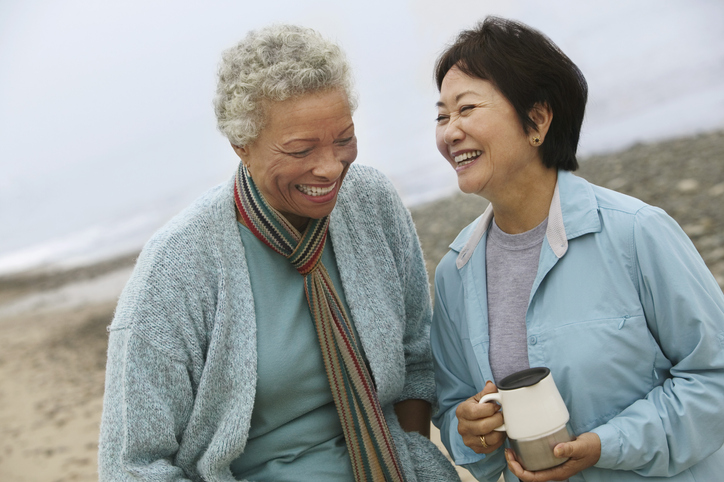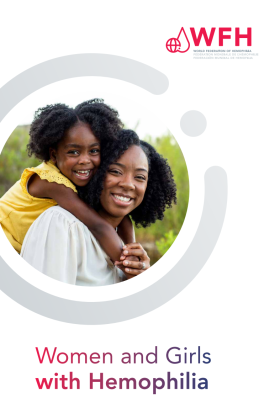Let's Talk about Intimacy for Women with a Bleeding Disorder and Aging

Posted on behalf of community member Mary Ann Massolio, Hematology/Oncology Social Worker, Tampa FL.vWD Type 1 Mild
Intimacy, sexual health and sexual desire are important at any age. Though your sex life might not be the same as when you were younger, it can still be fulfilling in many ways with open communication and adapting with your partner. Often times we interchange the terms “intercourse” and “intimacy”, without recognizing how many aspects of intimacy can be shared that do not include intercourse. Let’s first look at the many types of intimacy that partners can share, which can be used to navigate intimacy in a relationship and allow you to discover new ways to be intimate as you get older.
There is of course a very strong physical aspect of intimacy which includes sensual and sexual intimacy. There are however, many other aspects that include emotional, social, intellectual and spiritual levels of intimacy. Intimacy can include touching, holding hands, looks, words and thoughts. Emotional intimacy is psychological and is developed through trust and communication. Communication and recognizing your partner’s unique needs and abilities allows you to care for each others emotions. Intimacy, ultimately means you have the desire to love and be loved. It can be achieved by respecting and appreciating all levels of intimacy. When all levels of intimacy are in balance, your sexual intimacy can be too. Embrace the uniqueness of yourself and that of you partner. Be creative, patient and even humorous! Intimate expressions of love create mutual respect for one another.
When you are a woman with a bleeding disorder and have prolonged heavy periods for weeks, sleep with a beach towel under you and wear up to 3 XXXL pads just hoping to make it through the night without an accident, it’s hard to feel sexy! Embarrassment, humiliation, fear, poor self image and low self esteem, have consumed me on more nights than I can recall. Having a partner who understands your bleeding disorder can ease so much of this stress. Open communication with what is happening and why, can make all the difference. Communication often leads to acceptance and a couple can then navigate their own personal intimacy journey. Your partner needs to understand that you are not using your bleeding disorder as an excuse not to have sex, they are not responsible for any bruising or bleeding after intercourse and you do in fact, in spite of all that can happen, have the sexual desire for intimate moments. Many women in our groups have shared that their partners are afraid to hurt them because they feel they are responsible for bruising and are mortified and therefore are afraid to touch them. This can lead to isolation and a lack of intimacy. Work together to find all types of intimacy that help meet each others needs. One thing that can be very helpful is to bring your partner to your HTC appointment and ensure that they have a full understanding of what your bleeding disorder is all about.
It is very important to discuss intimacy issues with your Physician. When I ask women at vWD Retreats if they report bleeding after intercourse, the vast majority say no. There may be advice, treatment options and suggestions from your medical team that can ease your anxiety and issues both physically and emotionally.
I have found that while facilitating groups on Intimacy at Women with Bleeding Disorders retreats, women have shared very personal stories and “tips” if you will with each other on what has helped them. This peer support is very powerful because often times it is the first time they have discussed and disclosed such personal information. I’d like to share some commonalities and hope perhaps it may help you.
Sexual activities may cause bleeds anywhere in the body, including joints and muscles. Women shared that certain positions, those with less friction or pressure on the joints, were more enjoyable and they worried less about joint bleeds and bruising. Lubrication seems to be a common practice among women with bleeding disorders, especially aging women, (estrogen levels decrease) and they found less bleeding, pain, discomfort and swelling when applied. Many women shared that there is not a lot of spontaneous sex, that they “prepare” for sex with a beach towel, just in case. Some women have discussed treating before intercourse with their physician. One participant said that her partner lays the towel on the bed and they giggle like it is their intimate signal for sex. Several women said they have used an Instead Softcup (similar to a diaphragm) to help control bleeding during sex. We always agree on one thing…..no white sheets!
As I started out by saying, your sex life might not be what it was when you were younger, but open communication, trust and adapting, allows you to optimize your body’s response for sexual experiences and mutual satisfaction now. On a positive note, post menopausal women said they don’t bleed as much or at all and as a result have less anxiety with their sexual experiences. Communication and recognizing your partner’s unique needs and abilities as they change, allows you to care for each other and achieve intimacy at many levels.
About The Author
You May Also Like

Looking for more resources for women and girls with hemophilia?…
Share your voices, stories, artwork and videos.
